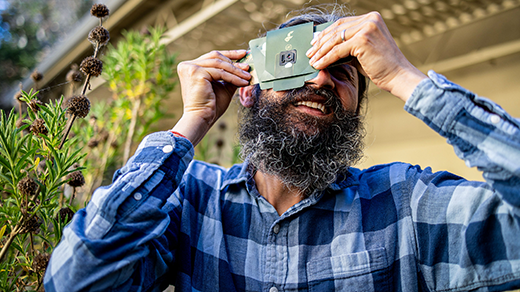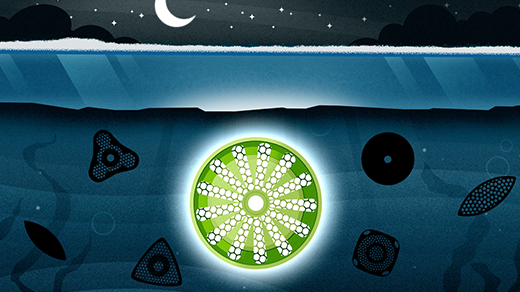What's up in
Marine biology
Latest Articles
The Pursuit of Life Where It Seems Unimaginable
A decade ago, Karen Lloyd discovered single-celled microbes living beneath the seafloor. Now she studies how they can survive in Earth’s crust, possibly for hundreds or thousands of years, and push life’s limits of time and energy.
How Paradoxical Questions and Simple Wonder Lead to Great Science
Manu Prakash works on the world’s most urgent problems and seemingly frivolous questions at the same time. They add up to a philosophy he calls “recreational biology.”
How Does Life Happen When There’s Barely Any Light?
Under the sea ice during the Arctic’s pitch-black polar night, cells power photosynthesis on the lowest light levels ever observed in nature.
Tight-Knit Microbes Live Together to Make a Vital Nutrient
At sea, biologists discovered microbial partners that together produce nitrogen, a nutrient essential for life. The pair are in the process of merging into a single organism.
How America’s Fastest Swimmers Use Math to Win Gold
Number theorist Ken Ono is teaching Olympians to swim more efficiently.
How This Marine Worm Can Tell Moonglow From Sunbeams
For the first time, scientists have decoded the molecular structure of a protein that helps to sync a biological clock to the phases of the moon.
She Finds Keys to Ecology in Cells That Steal From Others
The ecologist Holly Moeller studies microorganisms that expand their range by absorbing organelles and gaining new metabolic talents from their prey.
Sponge Genes Hint at the Origins of Neurons and Other Cells
A new study of gene expression in sponges reveals the complex diversity of their cells as well as some possibly ancient connections between the nervous, immune and digestive systems.
The Curious Strength of a Sea Sponge’s Glass Skeleton
A glass sponge found deep in the Pacific shows a remarkable ability to withstand compression and bending, on top of the sponge’s other unusual properties.








